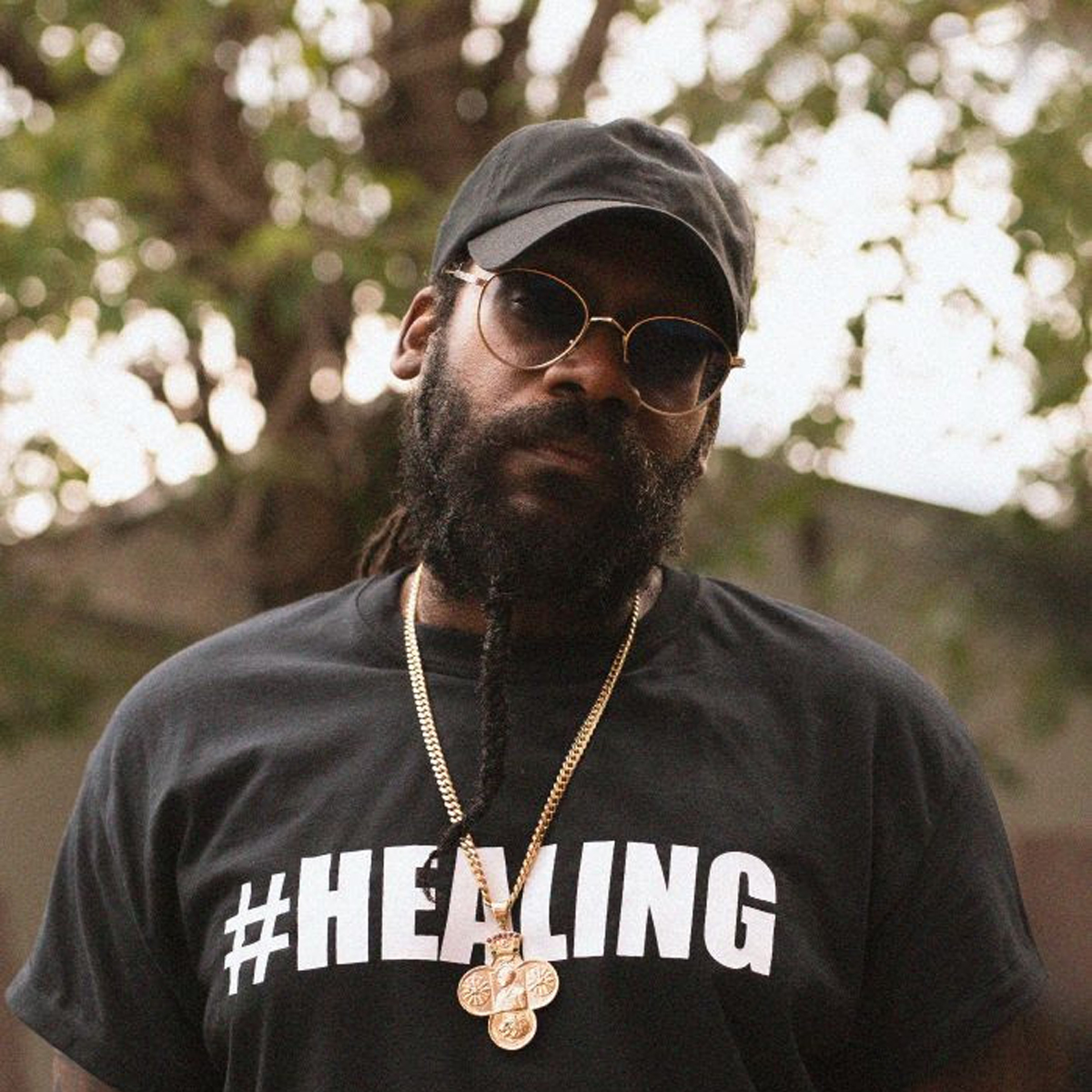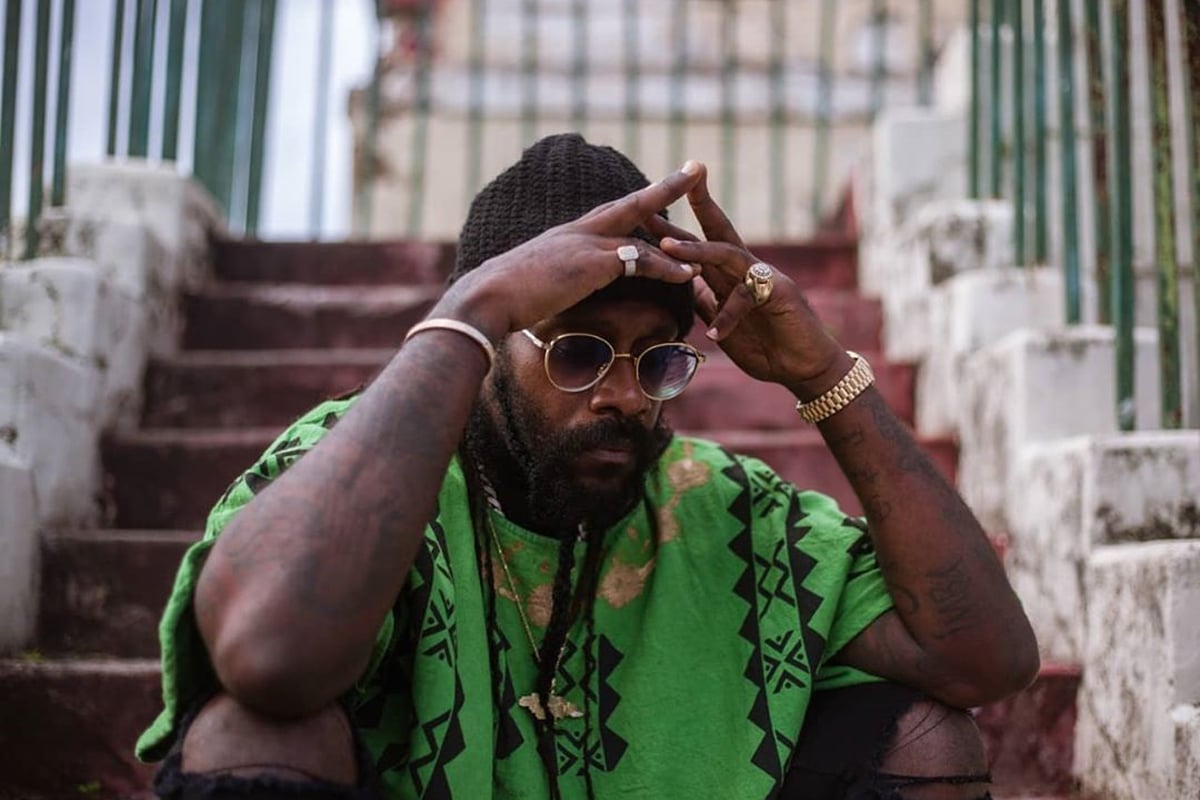Tarrus Riley: Healing Album Review

While doctors around the world are on the quest for a vaccine to help our bodies combat the physical effects of COVID-19, Tarrus Riley’s latest album, Healing, is a welcome antidote for the psychological and social side-effects of the virus and subsequent lockdown. In 12 artfully-written and delivered tracks, Riley’s aural oasis allows the listener to rest, reflect and re-hydrate for three-quarters of an hour, before continuing the journey through the desert that we call 2020.
Riley told the Jamaica Observer that he concocted the concept for the album after deep introspection.
“I did a lot of self reflecting, like the world is doing,” he said. “What I had to do to not panic, and keep my sanity, is to express myself. Not all of it is inspired by COVID-19. This project is about life itself: a soundtrack for our lives now, and maybe what is to be our lives.”
Riley pointed out in a another interview that his father (Reggae Icon Jimmy Riley) was a singer, and his mother is a nurse, so he, being a product of them both, makes healing music. And like he promised, the 43-minute long playlist might as well had been a strong does of paracetamol injected into the body.

But why use a hypodermic needle when the ears are already wide open and take the sounds straight to the brain? The painkiller kicks in from the first chords are strummed up in the opening track The Weak – Week, as Riley delivers a soothing lesson about time and its inevitable changes.
Great Equalizer, which features the distinct sound of Dean Ivanhoe Fraser’s saxophone, responds to the challenges mentioned in the opening track with one final answer–death. Riley sings “Guess we’re all equal now; level playground… Now that the great equalizer settle the score,” as a timely reminder that as we scramble to secure the unequally distributed resources in the pandemic, not of our earthly possessions will matter in death.
Having successfully sedated his listener, Riley then begins his healing operation with the album’s title track, with the precision of a neurosurgeon. With a noticeably more upbeat tune, the healer uses this track to question what the new ‘normal’ will look like after the worst of the COVID-19 pandemic has subsided. He gives the cure: “Love is the vaccination, stronger than medicine, could never be a sin.”
In the second quarter of the surgery, Riley zooms in on the chronic societal ills that have plagued us even before the pandemic. In Babylon WarFare (ft. TeeJay and Dean Fraser), Riley takes aim at the hegemonic force that is the Constabulary. He continues his social commentary with a well-timed remake of his father’s Poor Immigrant hit, that will surely resonate with Reggae lovers in the diaspora. He stitches that section up with the silky smooth vocals in Family Tree– an ode to the institution of family. “Cherish the fruits and water the roots. Love your ancestors protect your youth,” he prescribes.
In a drastic change of sounds and energy, the healer moves to the affairs of the lovesick heart in the second half. He borrows Shenseea‘s sensual vocals and Rvssian‘s unbeatable production formula to entrance the listener with the Lighter. The result? A song so viral and infectious that even COVID-19 is taking notes.

Another sweet collaboration follows, as he invites the new ‘Girls dem sugar’, Konshens, to Connect Again, adding to the growing list of hit collabs the duo have made since Good Girl Gone Bad in 2009. In the R&B-adjacent Connect Again, Riley years for his long-distance lover, with whom he will reunite post-op for a coital recovery.
My Fire (featuring Dexta Daps), is perhaps the most underrated song in the entire collection. Following Lighter and Connect Again, and given the type of content that Dexta is most known for, it was quite a refreshing surprise to stumble upon this motivational, self-affirming gem. The sweet, chant-like melody is a go-getter’s perfect companion.
As the healer begins to wrap up a successful operation, he looks far beyond the current state of affairs, and foresees better days. T.I.M.E. (Together in Moments Everlasting) is a sweet serenade, complete with saxophone interlude, that has even the single folks visualizing a lover’s embrace.
Riley jumps a generation ahead by allowing his children Akilah-Joy, Tsehai n Mekiem to lend their promising vocals to Remember Me. The one-drop beat, maracas, and strong savanna-like sounds paint a picture of the family on a long journey, and he reaffirms that he will be remembered through his children, while he asks God for guidance to continue leading them.
He might as well had asked Jimmy Cliff to collaborate with him on the closing track, as Blessings is an epic a ska revival track, flowing from the same vein that Cliff’s Harder they come and Desmond Dekker’s You can get it if you really want did.
And so Tarrus Riley ends the 42-minute aural Healing of the mind. Not only does he calculatedly formulate a timeless remedy that will outlast the current events, but he artfully blends and condenses and an entire lifetime of experiences into one vial of music. As World Mental Health Day draws to a close, we definitely prescribe that you you get your Healing if you haven’t done so as yet. Administer through the ears and repeat the dose as needed.
